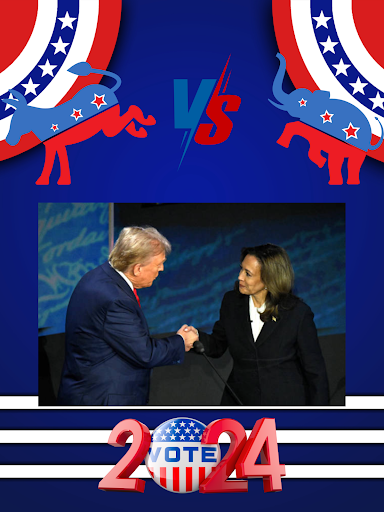1,126 days – That is the passage of time since the dark clouds of January 6, 2021, descended upon our nation’s capital – a date etched in infamy, its memory refusing to fade, haunting those who witnessed its horrors. For many representatives who were present that day, the trauma still lingers, manifesting in PTSD, anxiety, and a deep sense of unease that persists like a stubborn ghost. Rep. Jayapal told ABC News, “I think about it all the time. And every time I get an alert on my phone, I feel my heart starting to race a little bit more, more anxiety. I haven’t gone back to the gallery since that day. It was traumatic.” The specter of that day looms large, casting its shadow over the halls of Congress and over the lives of staffers and bystanders who found themselves unwittingly thrust into the line of fire.
The fear was palpable, the threat to life and liberty hanging heavy in the air. Among those caught in the chaos were the parents of students at the school; their proximity to the epicenter of the insurrection made the terror all the more visceral. The dread they felt, the anguish of knowing that danger lurked just beyond their doorstep, reverberates through our community, cutting deep and leaving wounds that may never fully heal.
Tragically, the toll of that day was not just psychological. Five lives were lost in the disorder, leaving behind devastated families and shattered communities. Their deaths were a stark reminder – the human cost of political extremism and violence.
However, Jan. 6, was more than just a day of personal trauma and tragedy. It was an assault on the very foundations of American democracy, a brazen attack on our societal institutions and cherished ideals of liberty, democracy, and freedom. More than 2,000 rioters descended upon the hallowed halls of the Capitol, driven by a singular objective: to halt the certification of the 2020 election results, which sealed Joe Biden’s victory over incumbent Donald Trump. This brazen attempt to subvert the democratic process was not born in isolation but was nurtured by the poisonous rhetoric of the former president himself.
From the moment he was defeated in November 2020, Trump embarked on a relentless campaign on social media to delegitimize the election results, peddling the baseless claim that victory had been snatched from his grasp through widespread fraud. This so-called “big lie” served as the rallying cry for those who would later storm the Capitol, their misguided fervor fueled by the false promise of reversing the will of the American people.
Trump’s complicity went beyond mere words. In the days leading up to Jan. 6, he actively fanned the flames of discontent, calling upon his supporters to descend upon the nation’s capital in a show of force. His tweet, beckoning followers with the ominous promise of a “wild” protest, served as a clarion call for chaos.
Moreover, Trump’s machinations extended into the very heart of the federal government. Reports emerged of his directive to Acting Secretary of Defense, Christopher Miller, instructing him to deploy whatever resources were necessary to ensure the safety of the demonstrators. Miller, in turn, issued a memo severely restricting the deployment of the D.C. National Guard without his approval, effectively hamstringing any meaningful response to the unfolding crisis.
On the day of the fateful rally, Trump’s rhetoric reached a fever pitch as he addressed his fervent supporters, goading them to fight for his cause with unyielding zeal. His words, dripping with defiance and disdain for the democratic process, served as a rallying cry for those who would soon descend upon the Capitol with violence in their hearts.
Even before Trump had finished speaking, the seeds of chaos had been sown. Far-right groups like the Proud Boys, emboldened by his words, launched their assault on the Capitol, breaching its defenses and plunging the nation into chaos.
These were not the actions of a leader committed to upholding the sanctity of democracy; they were the desperate maneuvers of a man clinging to power at any cost. By stoking the flames of unrest and sowing doubt in the integrity of the electoral process, Trump sought to undermine the very foundation of American democracy, all in service of his insatiable thirst for power.
We find ourselves standing at a crossroads, grappling with the unsettling reality that we are on the precipice of granting power once again to a man who has shown himself to be dangerously willing to undermine the very foundations of our democracy. Donald Trump’s brazen attempt to foment insurrection on Jan. 6, 2021, stands as a chilling testament to his insatiable thirst for power, and yet, astonishingly, we are contemplating affording him another shot at the presidency.
Let us be clear: legal guardrails exist to prevent such a travesty from occurring. Section 3 of the 14th Amendment unequivocally prohibits individuals who have “engaged in insurrection” against the United States from holding any civil, military, or elected office without the approval of two-thirds of the House and Senate. This constitutional provision, conceived in the aftermath of the Civil War, was intended to prevent former Confederates from wielding political power in the wake of their seditious acts.
Some may argue that Trump cannot be disqualified under this provision because he has not been formally charged with subverting the election or with insurrection. However, history tells a different story. In the aftermath of the Civil War, few Confederate sympathizers were arrested, yet thousands flooded Congress with requests for amnesty to “remove” their Section 3 disqualification. This historical precedent underscores the fact that a criminal conviction is not a prerequisite for disqualification under Section 3 of the Fourteenth Amendment.
Beyond mere legality, a moral imperative exists to prevent Trump from ascending to the highest office in the land once more. By allowing a man who has actively sought to overturn a free and fair election to run for president again, we would be betraying the very essence of democracy and undermining the voices of the millions of Americans who participated in the 2020 election.
Trump’s relentless insistence that he was the rightful winner of the 2020 election was not just delusion—it was a direct assault on the democratic process itself. In his eyes, the will of the people mattered little; what mattered was his insatiable hunger for power, regardless of the cost to our nation’s democratic institutions.
Continuing to include Donald Trump on the ballot in Virginia is not just a matter of political expediency; it is an endorsement of a twisted ideology—one that tells our youth, especially those who participated in their first election in 2020, that consequences do not apply to the wealthy and privileged elite like Trump. It sends a chilling message that in America and in the state of Virginia, the powerful can manipulate the political process with impunity, using their wealth and influence to evade accountability and burying their misdeeds under an avalanche of legal maneuvering.
This is not a new phenomenon. Virginia has a long and dark history of favoring the wealthy, white, and privileged, dating back to its roots as the birthplace of chattel slavery in 1619. Even after the abolition of slavery, the state implemented a series of laws—the Black Codes—to maintain the subjugation of African Americans. And when those laws were struck down, Virginia doubled down with the infamous Jim Crow laws, perpetuating segregation and inequality well into the 20th century.
But history does not have to dictate our future. Virginia now has an opportunity to break free from this legacy of oppression and injustice, embrace progressivism, and advocate for the rights and interests of its diverse population. Disqualifying Trump from the ballot is a proactive step in that direction—one that signals a commitment to justice and equality for all.
The policies enacted during Trump’s administration, from his relentless efforts to dismantle the Affordable Care Act (ACA) to his regressive environmental policies, have disproportionately harmed communities of color. People of color, who have historically faced barriers to accessing quality healthcare, have been put at even greater risk by Trump’s assault on the ACA. And his rollback of environmental regulations has endangered communities already burdened by factors like residential segregation and proximity to industrial facilities.
The stakes could not be higher. Trump’s vow to continue and expand upon his divisive policies should send chills down the spines of every Virginian. From his relentless crusade to repeal the Affordable Care Act to his support for draconian “tough on crime” measures that disproportionately target African Americans, Trump’s agenda poses a clear and present danger to the values of justice and equality that we hold dear.
His pledge to end the US Refugee program, reimpose stop-and-frisk, and support the shooting of suspected shoplifters and petty criminals is not just misguided—it is downright dangerous. These policies not only erode the fabric of our society but also perpetuate systemic racism and injustice, further marginalizing communities that are already on the frontlines of social and economic inequality.
Nonetheless, Virginia has an opportunity to take a stand against this assault on our democratic principles and minorities. Following in the footsteps of states like Colorado and Maine, which have already removed Trump from their ballots citing violations of Section 3 of the 14th Amendment, Virginia can send a powerful message that there are consequences for those who seek to undermine our democracy.
The case of Trump v. Anderson, the Colorado Supreme Court case which removed Donald Trump from the state’s ballot, is currently under review by the United States Supreme Court and has sparked a national conversation about the role of states in safeguarding the integrity of our electoral process. While some may argue that disqualifying Trump sets a dangerous precedent, allowing him to participate in the electoral process without consequences sets an even more perilous one—one that could embolden other aspiring autocrats to follow suit.
Ultimately, Virginia must remove Trump from the ballot. This victory, even if symbolic, would serve as a testament to our unwavering commitment to democratic principles and ensure that the voices of our citizens are not drowned out by those who seek to undermine the very foundation of our democracy. The time to act is now, for the soul of our nation hangs in the balance.












